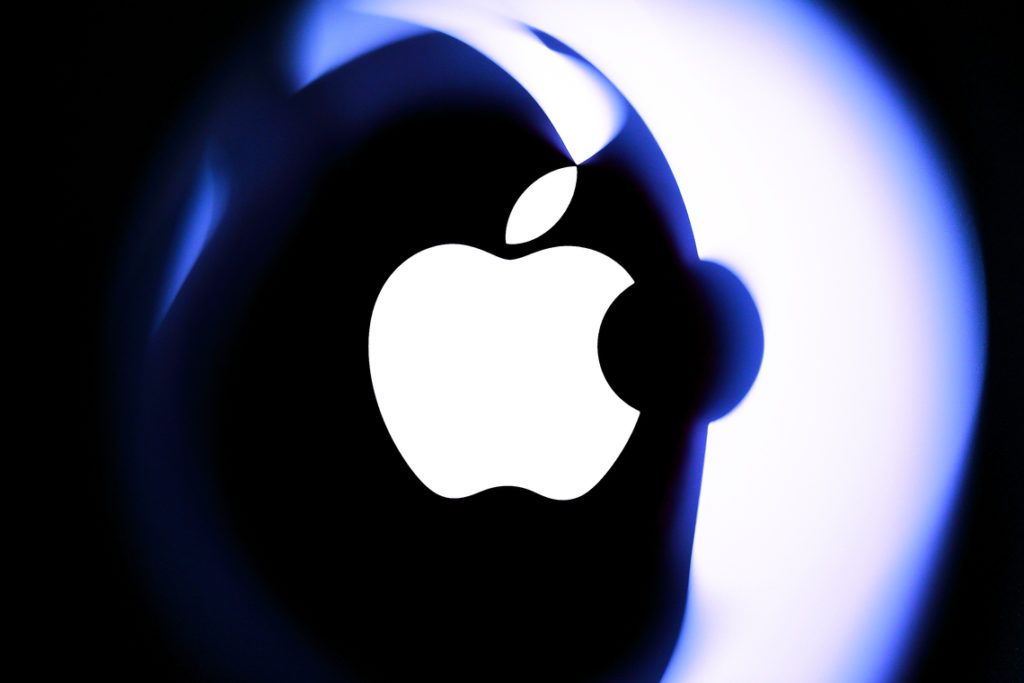Apple Inc. this week updated guidelines on how users may interact with non-fungible tokens (NFTs) on its App Store. The update is couched in a typically bombastic consumer protection tone. But the changes could have a profound impact on the NFT sector. A mix of good and bad, but also some clearly ugly developments to negotiate.
Accordingly, developers may now sell NFTs featured on Apple’s App Store but only via its in-app payment mechanism. It means content creators will be liable to pay Apple’s controversial 30% tax on sales.
Apple NFT Restrictions
Until now, NFTs appeared to have avoided the fees. Apple is keen that users don’t evade the tax by using crypto to pay for NFTs in its App Store. So it placed even more restrictions.
“Apps may allow users to view their own NFTs, provided that NFT ownership does not unlock features or functionality within the app,” the firm said.
Similarly, users may browse NFTs owned by others. As long the apps do not “include buttons, external links, or other calls to action that direct customers to purchasing mechanisms other than in-app purchase.”
Apple says apps must be licensed in the countries where they operate. This could complicate life for platforms that run discreet operations. It added that apps can’t “use their own mechanism to unlock content… such as license keys… cryptocurrencies, and cryptocurrency wallets, etc.”
Participants in the NFT industry interpreted the changes variedly. Some expressed cautious optimism, while others were altogether skeptical.

The Good
Apple has been criticized for its punitive transaction fees. Still, non-fungible tokens on the iOS App Store “could allow one billion more people to gain exposure into NFTs and open up a massive new market for cryptocurrencies.”
Mattias Tengblad, CEO of Corite, a web3 platform that enables fans to invest in artists, told BeInCrypto the move is positive. Since Apple did not “ban NFT related apps in any way, including ones where the tokens are bought and sold.”
“Many marketplace apps will probably build ‘companion’ type apps for iOS that allow users to organize, view, and otherwise interact with their NFTs, while using a browser based interface for the actual buying and selling part,” he said.
“There are definitely ways that these restrictive fees can be worked around. The fact that NFTs have entered into the mainstream, that the biggest tech companies are having to address their policies towards it is an encouraging sign,” added Tengblad.
Chandler De Kock, head of growth at Astaria, a protocol that provides liquidity for NFTs, told BeInCrypto:
“Big tech firms are increasingly adopting NFT technology and Apple is one in a long line of examples. Twitter with NFT avatars, Instagram, and now Apple creating policy on NFT sales on their platform solidifies that people are interested in NFTs.”
Some observers argued that Apple has a comparative advantage since people will be able to buy NFTs using fiat currencies. This will bring in those people who find crypto to be complicated to participate in the market.
Still, the advantage may not have much utility. The high transaction fees of 30% could be a potential deterrent, they say.
The Bad
Obviously, mandating the use of Apple in-app payments when buying or selling is restrictive due to the high fees. It could set the tech giant on a collision course with vendors. Apple has previously been sued for charging high transaction fees.
Ian Corzine, a lawyer and metaverse consultant, said that Apple isn’t playing according to the spirit and letter of DeFi.
“Yeah, this is a head scratcher to me. Why does Apple want to alienate blockchain asset sales? Perhaps to redirect to Apple only digital assets? Definitely not in line with our mantras of open, decent and interoperable,” he tweeted.
With a market capitalization of $1.2 trillion, Apple maintains a chokehold on apps that interact not only with its App Store but also with its technology. Its latest decision may be an extension of its outdated monopolistic tendencies, experts say.
“The NFT is fundamentally a web3 tech and applying web2 policies like the Apple App Store, is like fitting a round peg in a square hole,” De Kock, the Astaria executive, told BeInCrypto.
“Sure, you can make it fit but it’s not ideal. The app store’s policy is one we naturally expected Apple to make eventually. Still, its implementation lacks a nuanced understanding of the market it is trying to address,” he added.
Mattias Tengblad, the Corite CEO, said Apple might be alienating users.
“If you are building an app for casual users, they want everything to be at their fingertips and do everything within a single app, with the methods they are most comfortable with,” he told this publication.
“However, huge fees are very likely to change customer behavior and have them seeking alternative methods to buy and sell their NFTs.”
For those that have spent time and resources developing NFT marketplaces in iOS, they will “definitely not [be] happy about this decision because it will be much harder to attract and retain users,” Tengblad detailed.
The Ugly
Most proponents expected that NFTs would face criticism from “prominent industry players, but it does not make sense” for the entities to deliberately seek to limit their growth. Apple’s exorbitant fees on revenue are a major bone of contention.
Telegram founder Pavel Durov reacted angrily after Apple stopped content creators on his platform from using third-party bots to sell access to their individual posts without paying the 30% tax.
Eventually, Telegram had to disable such paid posts on iOS devices. It said it will start to offer creators “easy-to-use tools to monetize their content – outside of Apple’s restrictive ecosystem.”
While the Telegram experience may not be directly related to NFTs, Durov’s response illustrates the fate that may await some NFTs on Apple’s App Store.
“This is just another example of how a trillion-dollar monopoly abuses its market dominance at the expense of millions of users who are trying to monetize their own content,” he ranted in a post on Telegram on Oct. 28.
“I hope that the regulators in the EU, India and elsewhere start taking action before Apple destroys more dreams and crushes more entrepreneurs with a tax that is higher than any government-levied VAT,” Durov added.

Astaria’s De Kock said the major threat from Apple’s updated App Store Review Guidelines is the limitation of NFT and crypto adoption due to “such a restrictive sales policy.” He explained:
“Web3 has come leaps and bounds to make the user experience more friendly and mobile-first. This policy has the potential to limit the mobile push of web3 apps. Apple placing a broad strokes policy can do more harm than good if not done correctly. Ultimately the iPhone needs to be a place where people can interact with web3 if it is an industry that seeks to thrive.”
Looking Ahead
In 2020, non-fungible tokens emerged as a cultural storefront of the cryptocurrency industry. They brought up novel possibilities in the curation and circulation of art. NFTs swayed fascinating endorsements from pop celebrities such as Lindsay Lohan, Grimes, and several others.
Digital artist, Beeple, sold an NFT for more than $69.3 million last year. Twitter founder, Jack Dorsey, converted his first-ever tweet into a non-fungible token and sold it for $2.9 million.
Overall, non-fungible token industry volumes have topped $23 billion in 2022. The surge was led by marketplaces LooksRare and OpenSea, according to DappRadar data.
Going forward, the NFT lending market may not be as affected as the sales market, Chandler De Kock said.
However, “the guidelines in their current language leave enough wiggle room for people to adapt around them. I’m sure Apple will respond to those attempts,” he stated.
“The emergence of the web3 space is starting to interact more with web2 tech and will have to reconcile itself against the web2 standards. I expect moves like Apple’s to be the first in a long line of policy stances web2 companies make on web3 tech in the future.”
Disclaimer
Following the Trust Project guidelines, this feature article presents opinions and perspectives from industry experts or individuals. BeInCrypto is dedicated to transparent reporting, but the views expressed in this article do not necessarily reflect those of BeInCrypto or its staff. Readers should verify information independently and consult with a professional before making decisions based on this content. Please note that our Terms and Conditions, Privacy Policy, and Disclaimers have been updated.

